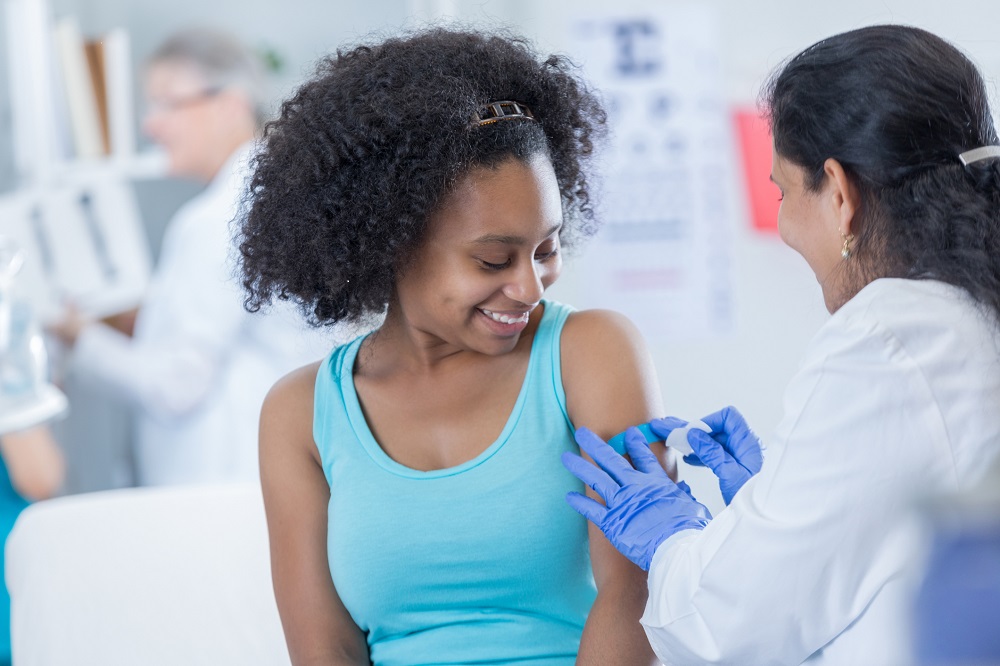Topics

Getty Images
Parents, let me ask you a question. What is the first thing that comes to mind when you hear “HPV vaccine?” Perhaps you immediately recall the day your adolescent son or daughter received it. Or maybe you remember a conversation with your child’s pediatrician about how you’re still unsure if you want your child to receive the vaccine. Or perhaps you feel a surge of fear from a Facebook post you read about a teenager whose parents claim was injured by the vaccine, so you’ve decided it’s safer to decline it.
I’ve worked for the Immunization Project at Texas Children's Hospital for more than 10 years, and in my experience, no vaccine is more misunderstood than the HPV, or human papillomavirus, vaccine. Let’s be honest – this topic makes a lot of parents uncomfortable. I get it. Discussing the HPV vaccine, often like discussing vaccines in general, has become dangerous territory. You simply cannot predict where someone stands on the issue, and you could be stepping on a conversational landmine just by bringing it up.
Regardless of your current perspective, and for the sake of your child’s long term health, I’d like to ask you to put everything you’ve heard or read aside, whether good or bad, for a few minutes to hear me out.
The HPV vaccine is arguably the single most important vaccine your adolescent will receive.
Let me explain why.
HPV is a disease that causes more than half a dozen different types of cancers including cervical, head and neck, anal, penile, vaginal and vulvar. It’s a disease that currently affects 79 million Americans with 14 million new infections each year. It is so common that nearly every adult is infected at some point in their life.
If that isn’t concerning enough, let me describe HPV-related cancers. Each year in the United States, 27,000 individuals are diagnosed with a cancer caused by HPV. That is one person every 20 minutes. HPV is the leading cause of head and neck cancers, and sadly, there is no screening yet for this type of cancer. HPV also causes 99 percent of cervical cancers.
But here we are, in 2018, with a vaccine that can prevent all of this illness, cancer and devastation. It’s a vaccine that is virtually 100 percent effective at preventing the precancerous lesions caused by the types of HPV contained in the vaccine, including the prevention of most cervical cancers. It’s a vaccine that has been studied in millions of men and women, and found to be very safe and effective. In fact, the HPV vaccine is arguably the most rigorously studied vaccine.
And yet, so many parents are declining this vaccine.
I receive many questions about the HPV vaccine in my small corner of the world, and I understand where many of these parents are coming from. As a working mother of three children, I also understand how many of our decisions are focused on the here and now. Does my sick baby have an ear infection? When will my 5-year-old stop sucking her thumb? Is my 7-year-old ready for braces? These are all questions I’ve asked myself in the last week alone.
However, it’s important to not lose sight of our long-term responsibilities as parents and what we want for our children’s future, especially regarding their health. Choosing to protect your child against HPV is a decision that has tremendous long-term implications for their health. But choosing to believe the unfounded rumors that the vaccine is harmful, ineffective, or too new to ensure that it is safe only serves to rob parents of the opportunity to give their children lifelong protection against this devastating, cancer-causing virus.
I don’t want either of my daughters to ever have a bad Pap smear or to develop precancerous lesions that require multiple procedures, subsequently risking their ability to conceive and carry a baby. I don’t want them to ever be forced to have an early hysterectomy from recurrent cervical cancer caused by HPV, which would completely eliminate their choice and ability to have children. Moreover, I don’t want my son to discover a lump in his neck at age 60 or 70 that turns out to be throat cancer, especially when his father and I may not be there to witness the very real and devastating consequences of the decision we made for him.
January is cervical health awareness month, and in honor of the millions of women affected by cervical cancer, I encourage you to please vaccinate your daughters. And while you’re at it, vaccinate your sons as well. Protecting both boys and girls is equally important. As parents, we are given a rare opportunity – the chance to protect our children from a life impacted by all HPV-related disease and cancer. Not only could this change our children’s lives, but those of generations to come.


